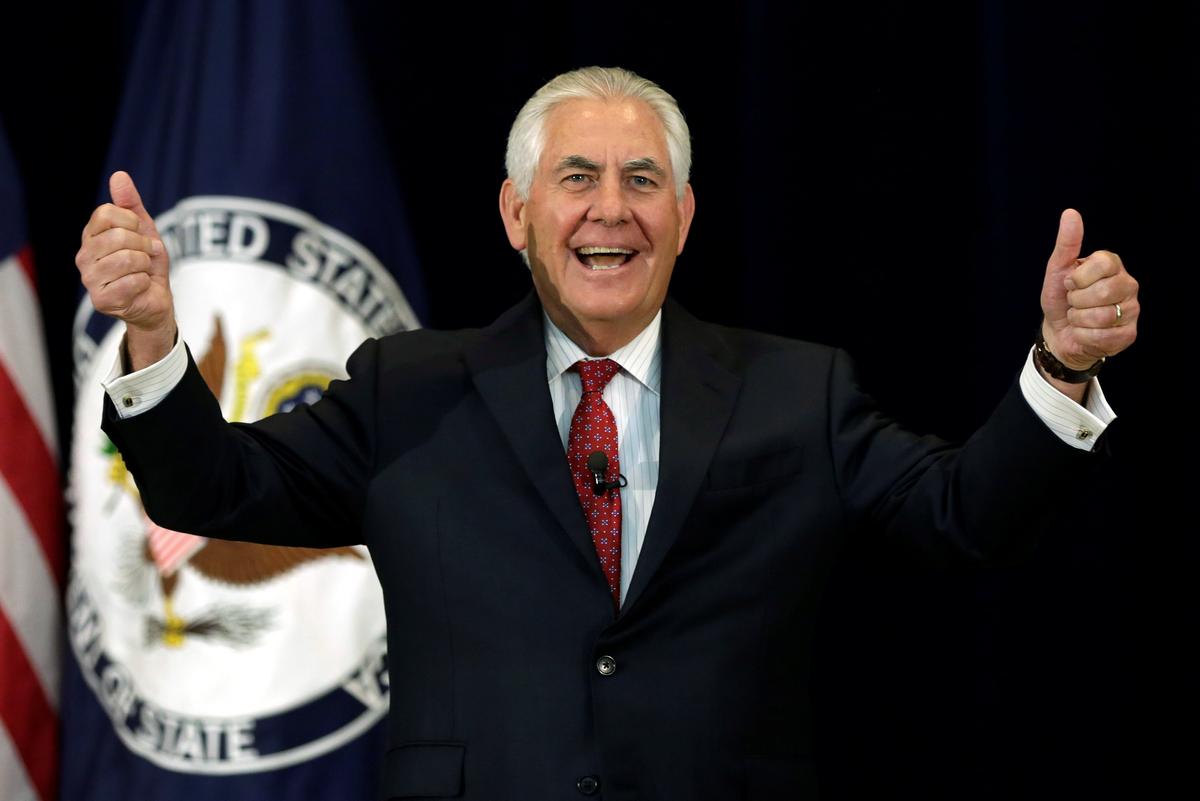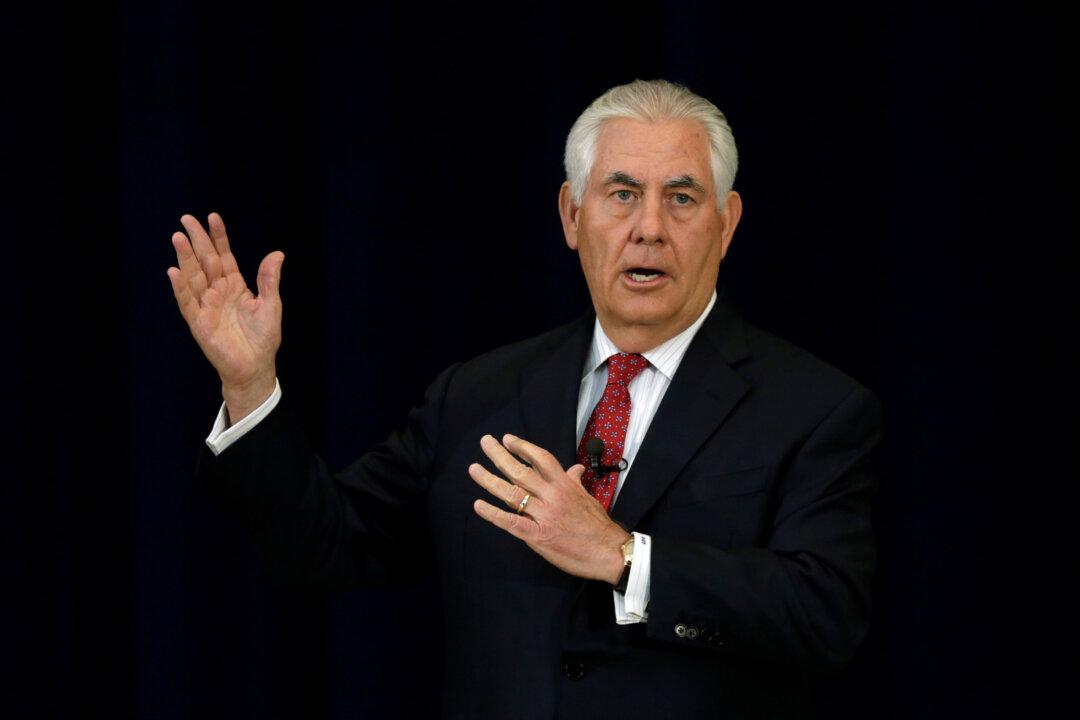WASHINGTON—Secretary of State Rex Tillerson on Wednesday outlined for Department employees how an “America First” agenda translates into foreign policy, but did not address the Trump administration’s proposed budget cuts, which worry many diplomats.
It was the first time Tillerson had addressed all employees since his first day on the job on Feb. 2, when he spoke to hundreds of State Department officials in the building’s lobby.
Some allies and even some U.S. officials have interpreted Republican President Donald Trump’s “America First” agenda, which puts Americans’ interests at home ahead of those of its partners overseas, as a threat to retreat from the world.
In the most thorough explanation yet of the Trump administration’s foreign policy views, Tillerson said U.S. foreign policy priorities had gotten “a little bit out of balance” in the previous decades.
“These are really important relationships to us, they’re really important alliances, but we’ve got to bring them back into balance,” he said, speaking without notes and walking around the stage in the State Department auditorium.






